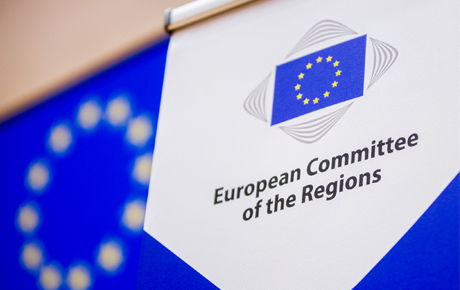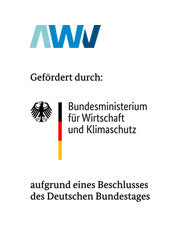European Committee of the Regions (CoR) – The Voice of Regions and Cities in the EU
AWV-Interview with Markku Markkula, First Vice-President of the European Committee of the Regions, Brussels

Mr. Markkula, since July you are the elected First Vice President of the “European Committee of the Regions“. Before you were its elected President for two and a half years. There are about 350 Members of CoR representing European regions and cities from all 28 EU Member States. Where do you see the role of the CoR in the context between politics on EU and national level? How is the CoR organizationally involved in EU decision-making?
Mr. Markkula: Created more than 20 years ago with the Maastricht Treaty, the European Committee of the Regions is the EU‘s assembly of local and regional representatives with 700 members from all 28 member states. Our members – including regional presidents, city mayors and councillors – must be democratically elected or hold a political mandate in their home country. As mayors and regional presidents, they already contribute to shape the political position of their national government through the existing relevant channels in their country, such as the Bundesrat in Germany. The CoR takes this one step further. Our membership represents local views, knowledge and experiences within the EU and is a vital link between EU citizens and its decision making bodies in Brussels.
Given that approximately 70 % of EU legislation impact our regions and cities, the CoR shapes EU legislation and shares its opinion on where the EU should focus its resources and investment potential. Today, this covers almost all EU policy areas, ranging from cohesion and employment, over agriculture and transport, to immigration, energy and cultural issues.
In these times of uncertainty, all of the EU‘s leaders, President Tusk, President Juncker and President Tajani, have addressed us during my time as President with a clear message: local and regional authorities have a pivotal role in overcoming Europe‘s challenges. We are sure that Europe needs better, more flexible regulation to ensure that its legislation is as efficient, effective and inclusive as possible.
The CoR is committed to the concept of “multi-level governance“. Multi-level governance requires mutual loyalty between all levels of government and administration, and between institutions, in order to achieve the common objectives. What forms of participation are there to ensure that the interests of local authorities are heard at European level? How is compliance with the subsidiarity principle ensured?
Mr. Markkula: The CoR is at its very core a channel for local and regional authorities to share their experiences, concerns and suggestions for EU legislation. However, the official options of the CoR are not the only way to achieve this. In our day-to-day work, we are in constant contact with both the local reality on the ground and also Members of the European Parliament and the European Commission through bilateral contacts and speaking engagements. Our opportunities to be the voice of citizens and business – including SMEs – are multiple.
On a personal level, over the last 36 months, I did my best to make the voice of regions, cities and rural areas heard by keynotes and speeches at around 400 conferences and events across Europe, very often on the invitation of CoR members. On top of that, I also represented the CoR in another 400 or so top-level meetings with Mayors and Presidents of regions, Head of States and Ministers, as well as Presidents of EU institutions and Commissioners.
Despite this, the European Union can only perform well when democracy and proximity to citizens are coupled with a proper functioning of subsidiarity and proportionality. The principle of subsidiarity governs the exercise of the EU‘s competences and has to be respected at each stage of the EU decision making process. As the guardian of this principle, the CoR has been given a substantial responsibility through the Lisbon Treaty; we shoulder our responsibility to trigger a red card when we see subsidiarity in jeopardy, but we hope it is something we will never have to do.
One of our most prominent members, Michael Schneider, representative of the Land of Saxony-Anhalt to the Federal Government and President of the European People‘s Party Group in the CoR, is the official speaker of the institution on defending subsidiarity. Five priority initiatives were selected to be subject to subsidiarity scrutiny by the Committee in 2017, including the Youth Initiative, energy efficiency and the Digital Single Market Strategy.
Seite 1 | Weiter zu Seite 2 | Weiter zu Seite 3 | Weiter zu Seite 4
Foto: European Union, Hatim Kaghat

